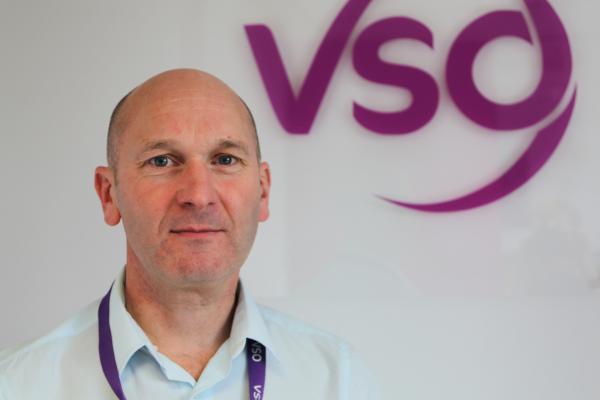Over the last year, organisations working in aid and development have been rightly challenged over their failings in dealing with abuse and harassment. In response to the scandals, the UK government is holding an International Safeguarding Summit in London in October.
Zero tolerance
VSO has a “zero tolerance” approach to abuse and harassment. This means being clear about what is acceptable or not. It is about ensuring all our colleagues and those we work with are encouraged to speak out and challenge inappropriate behaviours, wherever they occur. It means reporting, supporting and investigating any incidents immediately and to strict guidelines. It means continually improving the processes and practices which keep our staff, volunteers and beneficiaries safe from harm. “Zero tolerance” is the first principle that we follow at VSO.
But sadly, for a complex, global organisation even a zero tolerance approach can never mean zero incidents. VSO is responsible for over 7,500 volunteers, working with over 2 million people in 24 countries – the scale of our work means there will always be safeguarding incidents. If there were no safeguarding incidents reported at all then that would be a failure of our systems, and I would be asking questions.
Taking action
When safeguarding incidents are reported, there are two further principles which inform VSO’s actions.
The first is a “survivor-centred” approach. If a safeguarding incident happens, the wishes of the person who suffered the safeguarding incident guides VSO’s response. We treat them with dignity and respect, responding to their needs and what they want to happen, rather than making them subordinate to a “one size fits all” policy. It’s not our job to impose our opinions. The survivor’s safety and security is the priority, and their rights to privacy and support are paramount. We provide whatever survivors need. This may be legal support, medical support, or counselling, and we continue to support survivors for as long as necessary, often long after they return back to their communities.

This is our approach to anyone to whom we owe a duty of care, whether they are volunteers from the UK or people in the communities where we work. It is in line with our people-centred approach to development which puts the needs and rights of the people we serve at the centre of our work. It is a core value.
The second principle is transparency. We will always report inappropriate behaviour, no matter how minor it might be considered, who is involved or where it takes place. We report it as a “concern” even if we are not able to substantiate it or if it turns out to be unfounded. This is part of promoting zero tolerance and allows others to better hold us to account. We will not hide wrongdoing.
Our committment
We at VSO look forward to joining others at the DFID International Safeguarding Summit to make sure that we are collectively doing our very best in putting people first.
For those volunteers-prospective or past who might have concerns that they wish to report, they can do so by contacting safeguarding@vsoint.org
Read more

A ripple of change: how VSO volunteers are transforming communities
Every act of volunteering begins with a choice — a decision to act out of a desire to make a difference. Across the world, VSO volunteers are proving that one spark of action can ignite something much bigger.

The two volunteers empowering girls and young women in Mozambique
Nelma and Carmirene and are two volunteers working on VSO's EAGLE project in Mozambique. For Nelma and Carmirene, education is not just about school, it is about meeting people where they are and using the right tools to challenging harmful norms. Here are their stories.
Opening doors to safety, education, and a brighter future
For girls in Karamoja, the poorest region in Uganda, being forced into early motherhood is all too common. This Christmas, you can open the doors to Safety, Education, and a Brighter Future.
